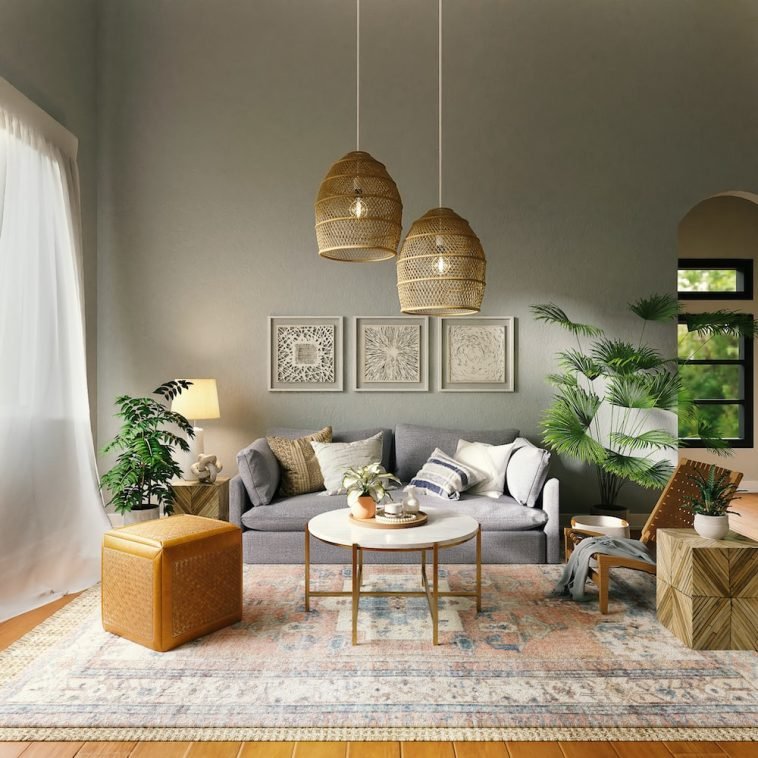Introduction.
Are you passionate about transforming spaces and creating aesthetically pleasing environments? Do you have a keen eye for design and a talent for bringing visions to life?
If so, starting an interior design business in Nigeria might be the perfect entrepreneurial venture for you. With the country’s growing economy and increasing demand for quality interior design services, there has never been a better time to enter the industry.
However, establishing a successful interior design business requires careful planning, creativity, and a solid understanding of the Nigerian market.
In this guide, we will walk you through the essential steps and considerations involved in starting your own interior design business in Nigeria, helping you navigate the exciting and rewarding world of interior design entrepreneurship.
Whether you’re a seasoned designer looking to break free from the corporate world or a budding creative seeking to turn your passion into a profitable business, this guide will provide you with valuable insights and practical advice to kickstart your journey in the Nigerian interior design industry. Let’s dive in!
What Is an Interior Design Business?
An interior design business is a professional service that specializes in enhancing the functionality, aesthetics, and overall appeal of interior spaces.
Interior designers work closely with clients to understand their preferences, requirements, and budgetary constraints to create personalized and visually appealing designs for residential, commercial, or institutional spaces.
Interior design businesses offer a wide range of services that may include:
- Space planning and layout: Interior designers analyze the available space and develop efficient floor plans to maximize functionality and optimize the use of the area.
- Concept development: Designers collaborate with clients to establish a design concept or theme that aligns with their vision and objectives for the space.
- Colour schemes and material selection: Interior designers assist clients in selecting appropriate colour palettes, materials, finishes, and textures that harmonize with the overall design concept.
- Furniture and accessories: Designers help clients choose furniture, fixtures, and accessories that complement the design and enhance the functionality and comfort of the space.
- Lighting design: Interior designers create lighting plans that incorporate natural and artificial light sources to enhance the ambience, mood, and functionality of a space.
- Project management: Designers oversee the execution of the project, coordinating with contractors, suppliers, and other professionals to ensure timely and successful completion of the design.
Interior design businesses may cater to various sectors, including residential homes, commercial offices, retail stores, hotels, restaurants, healthcare facilities, educational institutions, and more.
They can operate as independent design studios, boutique firms, or larger companies with multiple designers and support staff.
The primary goal of an interior design business is to create visually appealing, functional, and harmonious spaces that meet the needs and preferences of their clients while considering factors such as safety, sustainability, and budget constraints.
Why Should I Start an Interior Design Business?
Are you a creative individual with a passion for design and a knack for transforming spaces? Are you contemplating starting your own business and wondering which industry to venture into? Look no further.
Starting an interior design business can be an incredibly fulfilling and lucrative endeavour. In this article, we will explore compelling reasons why starting an interior design business could be the right choice for you.
1. Express Your Creativity.
One of the most compelling reasons to start an interior design business is the opportunity to express your creativity.
As an interior designer, you have the freedom to conceptualize and bring to life unique and visually stunning spaces.
From selecting colour schemes to choosing furniture and accessories, every project becomes a canvas for your artistic expression.
The satisfaction of seeing your creative vision materialize in real-world settings is truly rewarding.
2. Fulfilling and Personalized Client Interactions.
Interior design is a client-centric industry, allowing you to work closely with individuals and businesses to understand their needs and aspirations for their spaces.
Building relationships with clients and helping them achieve their vision is a gratifying experience.
Each project presents a new challenge and an opportunity to create personalized and tailored solutions. The joy of witnessing clients’ delight and satisfaction with your work is immeasurable.
3. Diverse and Dynamic Industry.
The interior design industry is dynamic and ever-evolving. From residential to commercial spaces, the demand for interior design services is consistently high.
Whether it’s renovating homes, designing offices, or creating unique retail environments, you’ll have the chance to work on a variety of projects across different sectors. This diversity keeps the work exciting and ensures there’s always something new to explore.
4. Flexibility and Independence.
Starting an interior design business provides you with the flexibility to set your schedule and work on your terms.
You can choose the projects you want to undertake, allowing you to align your work with your interests and expertise.
Additionally, as a business owner, you have the independence to make decisions, shape your brand, and control the direction of your company.
5. Financial Potential.
The interior design industry offers significant financial potential. As your reputation grows and you establish a strong portfolio, you can command higher fees for your services.
Moreover, the demand for skilled and talented interior designers continues to rise, particularly in urban centres and commercial hubs.
This presents opportunities for growth and expansion, including the potential to scale your business and hire a team of talented designers.
6. Contribution to Well-being and Quality of Life.
Interior design plays a crucial role in enhancing people’s well-being and quality of life. By creating functional and aesthetically pleasing spaces, you have the power to positively impact how people live, work, and interact within their environments.
Whether it’s designing a peaceful sanctuary at home or a productive and inspiring workspace, your work can enhance the lives of others, making a meaningful difference.
How Do I Start an Interior Design Business In Nigeria?
Nigeria, with its thriving economy and increasing demand for quality interior design services, presents a promising landscape for entrepreneurs looking to start an interior design business.
However, like any business venture, establishing a successful interior design business requires careful planning, creativity, and a solid understanding of the Nigerian market.
In this article, we will guide you through the essential steps and considerations involved in starting your own interior design business in Nigeria, helping you navigate the exciting and rewarding world of interior design entrepreneurship.
1. Develop Your Skills and Expertise.
Before starting an interior design business, it’s crucial to hone your skills and expertise in the field.
Consider pursuing a formal education in interior design or related disciplines to acquire a strong foundation of knowledge.
Additionally, gaining practical experience through internships or working with established designers can provide invaluable insights and exposure to real-world projects.
2. Define Your Niche and Target Market.
Identify your niche and target market within the Nigerian context. Determine whether you want to focus on residential, commercial, or institutional spaces.
Consider specializing in a particular style, such as contemporary, traditional, or sustainable design, to differentiate yourself in the market. Understanding your target market will help you tailor your services and marketing efforts effectively.
3. Create a Business Plan.
Develop a comprehensive business plan that outlines your vision, mission, target market, services, pricing structure, marketing strategies, and financial projections.
A well-crafted business plan will serve as a roadmap for your interior design business and help you secure funding if needed. It will also provide clarity and direction as you navigate the early stages of your business.
4. Register Your Business.
Register your interior design business as a legal entity with the appropriate government agencies in Nigeria.
Consult with a lawyer or business advisor to ensure compliance with all legal requirements and obtain the necessary permits and licenses.
Choose a business name that reflects your brand identity and is memorable to potential clients.
5. Build a Strong Portfolio.
Develop a portfolio showcasing your design projects, even if you’re just starting. Create mock-up designs or offer discounted services to friends, family, or local businesses to build a diverse portfolio.
High-quality visuals and well-documented case studies will demonstrate your skills and help attract potential clients.
6. Establish Supplier and Contractor Relationships.
Build relationships with reliable suppliers and contractors who can provide quality materials and execute your designs effectively.
Establishing a network of trusted professionals is crucial for delivering exceptional results and meeting client expectations.
7. Develop a Strong Online Presence.
In today’s digital age, having a strong online presence is essential for reaching potential clients. Create a professional website showcasing your portfolio, services, and contact information.
Utilize social media platforms like Instagram, Facebook, and LinkedIn to share your work, engage with followers, and build a brand presence.
Consider investing in search engine optimization (SEO) to improve your website’s visibility in online searches.
8. Provide Excellent Customer Service.
Customer satisfaction is paramount in the interior design industry. Focus on providing exceptional customer service by actively listening to your client’s needs, maintaining clear communication, and delivering projects on time and within budget. Positive client experiences will lead to referrals and repeat business.
9. Continuously Update Your Skills and Stay Inspired.
The interior design field is ever-evolving, with new trends, technologies, and materials emerging regularly.
Stay updated with industry news, attend workshops, conferences, and trade shows, and engage in continuous learning to expand your knowledge and skills.
Draw inspiration from global design trends while incorporating elements of Nigerian culture and aesthetics to create unique and relevant designs.
Conclusion.
Remember that building a reputable interior design business takes time. Stay focused, continuously refine your skills, and always strive for excellence.
As you gain experience and a satisfied client base, your business will flourish, and you’ll establish yourself as a trusted name in the Nigerian interior design landscape.
So, seize the opportunity, embrace the challenges, and embark on your journey to start an interior design business in Nigeria.
With the right mix of creativity, business acumen, and a passion for design, you can turn your dream into a thriving reality in the vibrant Nigerian market. Good luck with your entrepreneurial endeavour!






GIPHY App Key not set. Please check settings